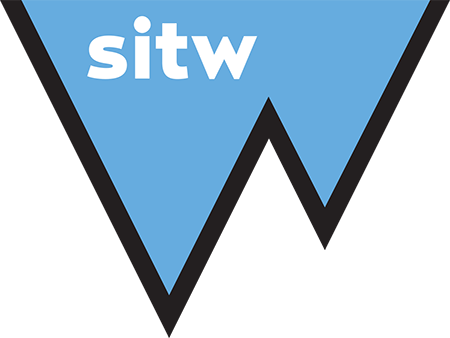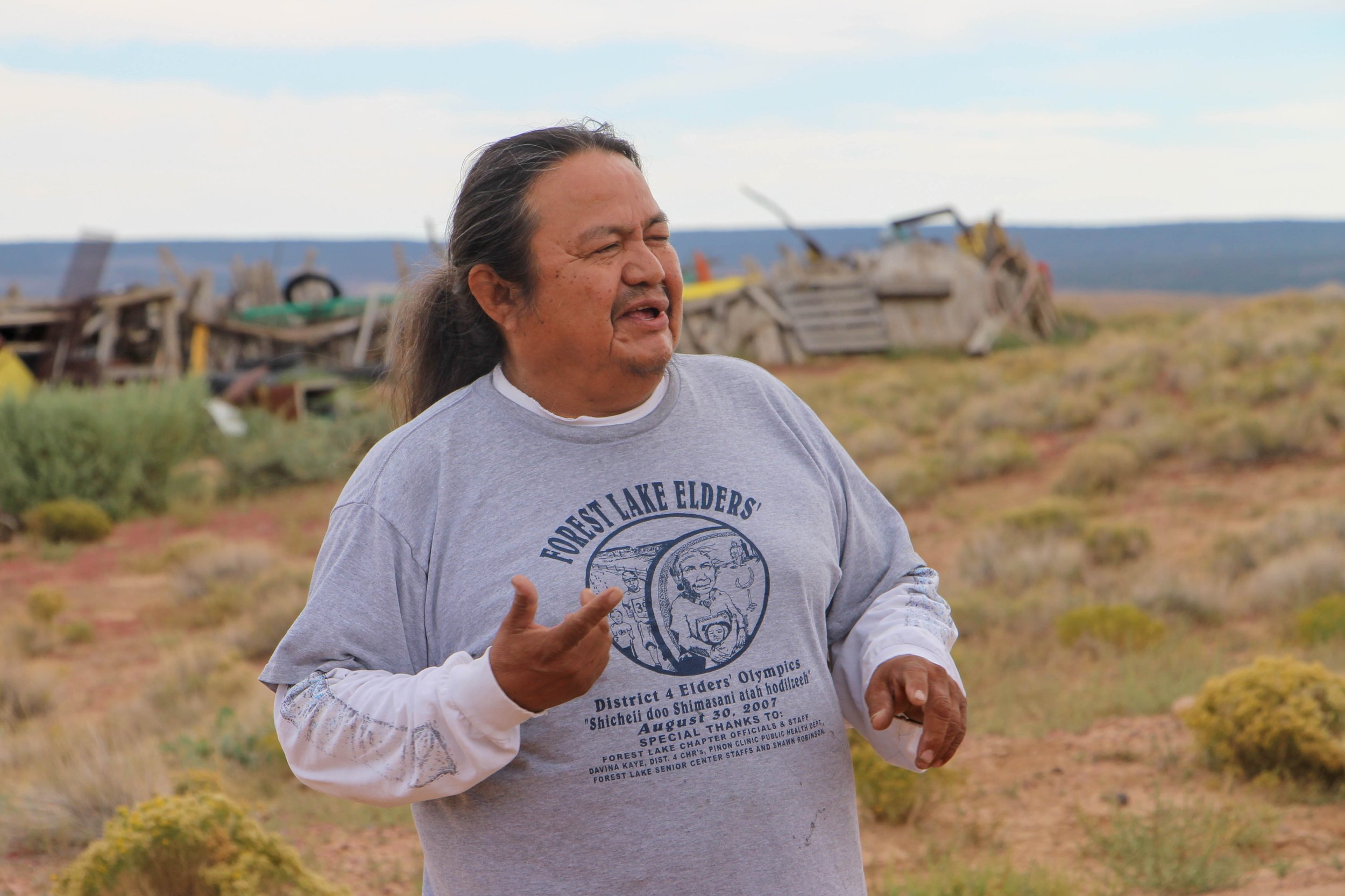Norman Benally
Interpreter, activist, sheep herder, and assembly line worker
Black Mesa, AZ / Navajo Nation
9/25/21
Self-proclaimed “old timer,” Norman Benally meets Westies outside his home in Black Mesa on the Navajo Nation in Arizona. His house adjoins a retired coal processing plant. Peabody Energy moved into the region in 1968, mining coal and pumping water from the Navajo aquifer to power cities off the reservation – Tucson, Flagstaff, Las Vegas. For years, many Diné (Navajo) people depended on the coal plant for work and the aquifer for water, yet their proximity to these resources did little to increase their access.
Today, the plant is shut down. A pipeline borders Norman’s house, but no water runs through his faucet. “The politics are as dirty as the coal plant,” he states—not to mention the drinking water. This summer, 86 of his sheep died after drinking from a nearby spring. He holds up a plastic water bottle, “we never drank out of these [until now].”
Before the backdrop of an arid, industrial landscape – his backyard – Norman expounds on the “struggle to maintain a way of life we were raised in,” when any extra cash goes into feeding his livestock, and the local resources “to keep all those AC units running in the Southwest.” Norman has pushed through this struggle. He resisted removal, fought, and remained. Norman’s activism, working as a translator for Navajo matriarchs to speak out against the coal plant and pass down Diné stories, has brought him to locations such as Standing Rock and the United Nations. His story is what he calls “the hard truth.” He intends to continue resisting.
By Neave Fleming


